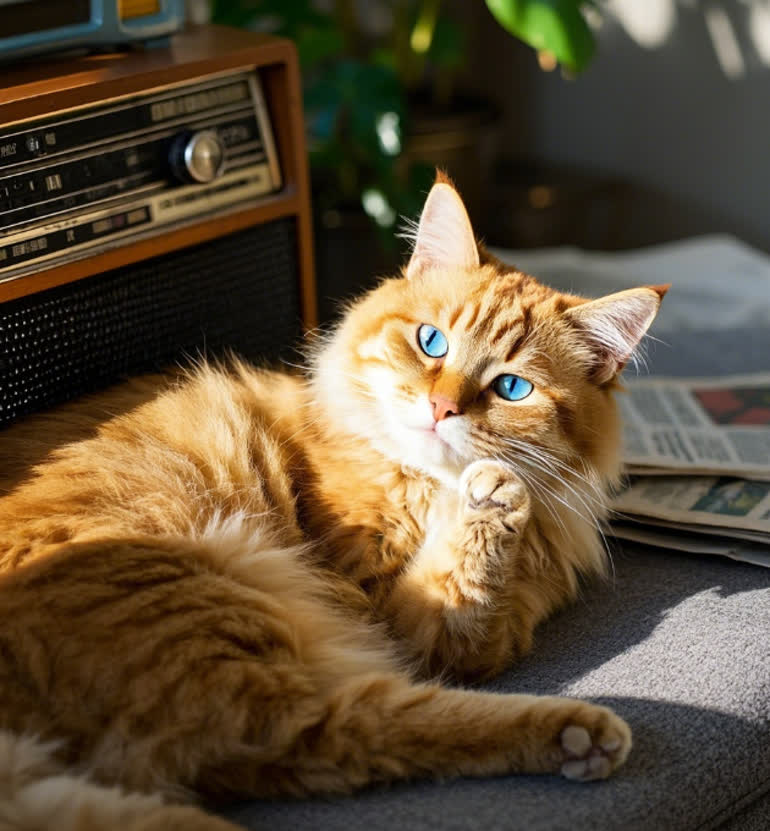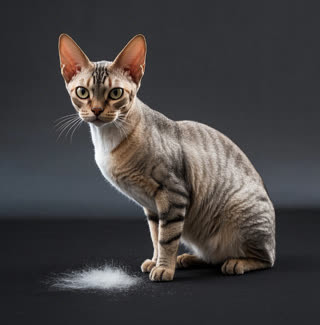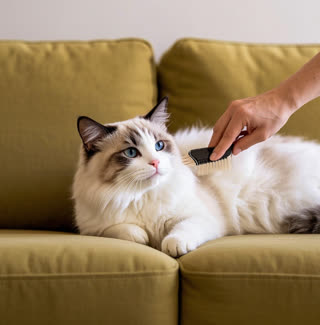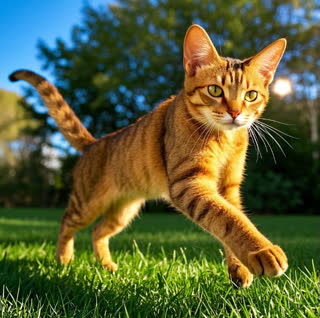As cat owners, we cherish the special bond we share with our feline friends. Nevertheless, as our cats get older, they go through natural physical and behavioral changes. Recognizing the senior cat signs is crucial for offering them the best care possible. In this comprehensive guide, we'll look at five key cat aging symptoms and provide practical advice on how to tell if your cat is old and how to enhance their golden years.
One of the earliest senior cat signs is a decline in activity levels. While kittens are full of boundless energy, older cats, typically those over 10 years old, may start to move more slowly. They might find it a struggle to jump onto high surfaces like the couch or bed. Arthritis, a common condition in aging cats, can cause joint pain and stiffness. If you notice your cat avoiding stairs or showing a preference for lying in secluded spots, it could be an indication of cat mobility decline.
What you can do:
Provide ramps or steps to help them reach their favorite places.
Opt for soft bedding to support their joints.
Engage them in gentle play sessions to keep their muscles active.
Aging can bring about significant changes in a cat's appetite and hydration. Some senior cats may eat less because their metabolism slows down, while others may eat more due to hyperthyroidism or diabetes. Excessive thirst and frequent urination are classic signs of kidney disease, which is quite common in older cats. Sudden weight loss or gain should never be ignored, as these are important cat aging symptoms.
What you can do:
Monitor their food and water intake on a daily basis.
Choose senior - specific cat food that is rich in nutrients and easy to digest.
Arrange regular blood tests to screen for age - related diseases.
Poor dental health is often an overlooked senior cat sign. Tartar buildup, gum inflammation, and tooth loss can make eating a painful experience for your cat. You may notice bad breath, drooling, or a reluctance to eat dry food. In severe cases, oral infections can even affect their overall health.
What you can do:
Brush your cat's teeth regularly using pet - friendly toothpaste.
Give them dental treats or toys to reduce plaque.
Schedule annual dental check - ups with your veterinarian.
Just like humans, cats can experience cognitive decline as they age. This may manifest as confusion, disorientation, or changes in their sleep - wake cycle. Some cats may start meowing more frequently or forget where their litter box is. These cat aging symptoms are often associated with feline cognitive dysfunction (FCD), which is similar to Alzheimer's disease in humans.
What you can do:
Keep their living environment consistent to reduce stress.
Use pheromone diffusers to promote relaxation.
Consult your vet about supplements that can support brain health.
A cat's skin and coat can reveal a lot about their health. Senior cats may develop dry, flaky skin or bald patches. Their fur may lose its shine and become coarse. Hormonal imbalances, allergies, or underlying health conditions can all contribute to these issues.
What you can do:
Brush their fur regularly to distribute natural oils.
Bathe them only when necessary using hypo - allergenic shampoo.
If the problem persists, consult a dermatologist.
The average feline life expectancy is 12 - 15 years, but with proper care, many cats can live well into their late teens or even early 20s. Geriatric cat care involves more than just treating symptoms; it focuses on proactive health management. Regular vet visits, a balanced diet, and mental stimulation are essential for ensuring a high quality of life.
While some senior cat signs are a normal part of the aging process, others may signal serious health problems. If you observe any of the following, contact your vet immediately:
Sudden and severe weight loss.
Vomiting or diarrhea that lasts for more than 24 hours.
Difficulty breathing or rapid breathing.
Lethargy or loss of interest in activities they once enjoyed.
Recognizing the senior cat signs and understanding how to tell if your cat is old is the first step in providing them with the love and care they deserve. By being attentive to changes in their behavior, health, and mobility, you can help your furry companion enjoy a comfortable and happy life in their golden years.










